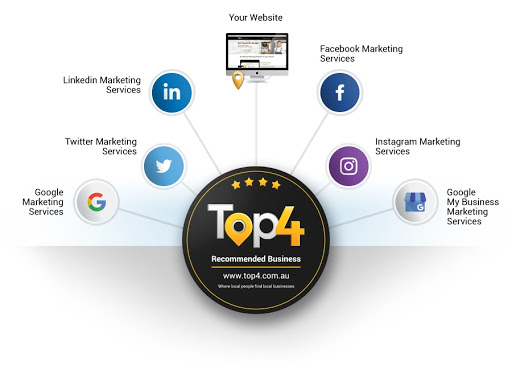Developing advanced SEO skills requires considerable training and practice over a period of years. And after that, even SEO experts get stumped and must stop and think about the best way to solve a problem.
Combine all that with the fact that Google’s algorithms can change several times daily, and you’ll find that you can’t simply master SEO by studying a book or two. You need to put in the effort.
Given the time commitment involved in becoming an Internet marketing expert, no one should blame beginners for being a bit intimidated by SEO.
Expertise in SEO’s applications is accumulated over time. This is complex stuff that isn’t getting any easier.

At the same time, however, it’s worth it to stop and think about all I’ve said so far.
For you beginners out there, SEO is probably as complicated as you thought and more so.
But how you perform in the SEO field depends on a lot of factors, such as your attitude toward it and your commitment to getting it right.
I’ve been in digital marketing for more than 20 years, so SEO is second nature to me now. But I’ve also put the time into learning SEO and staying up to date.
What I’m saying is this: even I had to start somewhere with SEO, and if I can do it, anyone can.
Here are three areas of SEO that I suggest you pay attention to as you hone your skills in the craft over time. This list isn’t exhaustive.
If you’re a beginner, you can focus on any number of SEO departments, such as devising an effective content marketing strategy, leveraging DIY tools such as the Yoast SEO plugin, and learning the industry’s tried-and-true best practices.
But the following are three core areas of SEO that beginners are well-advised to look into now.
1. Rank Brain Thinks Like a Human
Rank Brain is the part of Google’s algorithm that uses machine learning to match up search results with user queries. But there’s more to that definition than meets the eye.
Experienced digital marketers know that Rank Brain doesn’t just directly “match” queries to webpages.
It literally uses search data to determine user intent and then matches search results to the unstated intentions of the searcher.
What does that mean for the SEO specialist just starting out?
In simple terms, it means Google is intelligent enough to understand the semantics of what searchers are looking for and will deliver the most relevant results based on those semantics.
For instance, your Google search for “fall hoodies” could mean a lot of things. Most likely you want to buy one, but take a look at the cards in SEM rush’s topic research tool.
It shows you that searches for “fall hoodies” could be seeking results about “graphic hoodies,” “unique hoodies,” and “hoodies womens.”
You didn’t search for anything “graphic” or “unique,” but Google used past search data to deliver those results it thought would be relevant to you.
That’s an example of Rank Brain using word vectors to show you results you’ll probably like. Think of human semantics.
You know if I refer to Kawhi Leonard shooting a ball, I’m talking about his skill as a basketball player, not him firing a projectile at a ball.
You can use Google’s knowledge of semantics to write killer content that’s built around actual search queries. Basically, if you can think like a human, you can figure out SEO.
For you beginners out there, maybe this was still more complicated than you expected, but it’s a good place to start studying up on how SEO interacts directly with search engines.
2. You’re Looking for the People Who Are Looking for You
My point with this post is to boil SEO down to its basics for all the beginners out there, but I find that just remembering the main tenets of the industry will help guide you through the more complex tasks associated with SEO.
What does installing an SSL certificate have to do with optimizing meta tags, writing quality H1s and H2s, and implementing structured data markups?
It is all somehow related to finding the customers who are looking for you. That’s what SEO is all about. You and your customers are looking for each other, and SEO leaves the bread crumbs that will guide them to you.
An SSL certificate tells visitors to your website that the personal information they share with you is encrypted.
The certificate’s presence is displayed in the page’s URL as “https” as opposed to “http.” Users are more likely to share data with an “https” site.
Meanwhile, meta tags and H1s and H2s obviously tell both Google and users what a page is about. The more popular and relevant the information you place here, the higher your page is likely to rank.
And structured data add rich snippets to your result in the SERPs.
Instead of showing just your store’s product URL and meta information, structured data will allow users to see starred reviews, prices, images, calories and cook times in recipes, and much more.
Results with rich snippets look better and offer searchers more relevant information for their queries. They’re likely to get more organic clicks.
And while it can take some time to do all of this well, even an SEO novice will probably notice that it all works toward the same goal: helping customers find businesses.
So don’t sweat the technical SEO. It’s all united in purpose, and that should help you stay organized.
3. SEO Authority Is the Same as Human Authority
Think about what it means to have authority in human society. A person or group with authority has the power to influence others and make decisions.
It might sound odd to think about at first, but the same applies in cyberspace: websites have authority, and just like in society, it’s founded on the influence your site has over others.
Not all the time, but people who are authorities in their field tend to be heard and trusted more than others.
Similarly, Google trusts websites with more authority and uses that fact to rank certain websites over others.
A website with a higher authority is like the highest-ranking officer in a company. People tend to pay attention because authorities have earned their respect.
So, how do websites increase their authority? There are many ways.
One of them is to earn inbound links to your site from other sites. Earning links can take a variety of forms, but the most basic way is to show a site owner that linking to your site is to your mutual benefit.
Write a guest post that’s directly related to the content on the target site already. Make sure your content is well researched and authoritative.
Only by doing this can your website become the authority you want it to be. If your website is high quality already, and the content you write for a back link is original and useful, you may just earn that link.
Build enough links from good-quality websites, and you’ll slowly increase your authority.
You can also boost authority by optimizing your website’s internal linking. Make sure the anchor text flows naturally in your content and links to pages that are actually relevant to what people are currently reading about.
Furthermore, you can help the rest of your site by having your authoritative, high-traffic pages link to pages with lower traffic. That’s an example of using the authority you’ve earned to influence other aspects of your SEO strategy.
Summary
When you really think about it, this concept of earning authority in SEO is not much different from earning it in life. Knowing what will gain you more authority is common sense, but actually doing it takes work.
That’s the nugget I wanted to get across in this post. Yes, learning SEO always takes time and effort, and you might struggle with the doing of it.
But if you know what you’re going after, that’s half the battle. And even though it’s sometimes difficult, putting the time in will no doubt lead to increased success over time.

Looking to build customer loyalty through social media? Don’t forget to add your business to Top4 Marketing
List your business, create your own digital store to sell goods and services, and share posts on social media. Promote your business on Google instantly! Should you need help with local digital marketing then view our new Google Marketing Platform and services Top4 Marketing
Get Found On Google Promote Your Website, Reach local customers today!
Our Digital Marketing Agency Services Across All Industries Include Search Engine Optimisation (SEO), Google Marketing, Website Design, Corporate Web Development, and local location-based marketing using our own Google Marketing Platform!
Engage A Social Media Agency For Only 1/3 The Cost Of Employing A Social Media Manager…LET’S TALK!
Source: searchenginejournal.com




